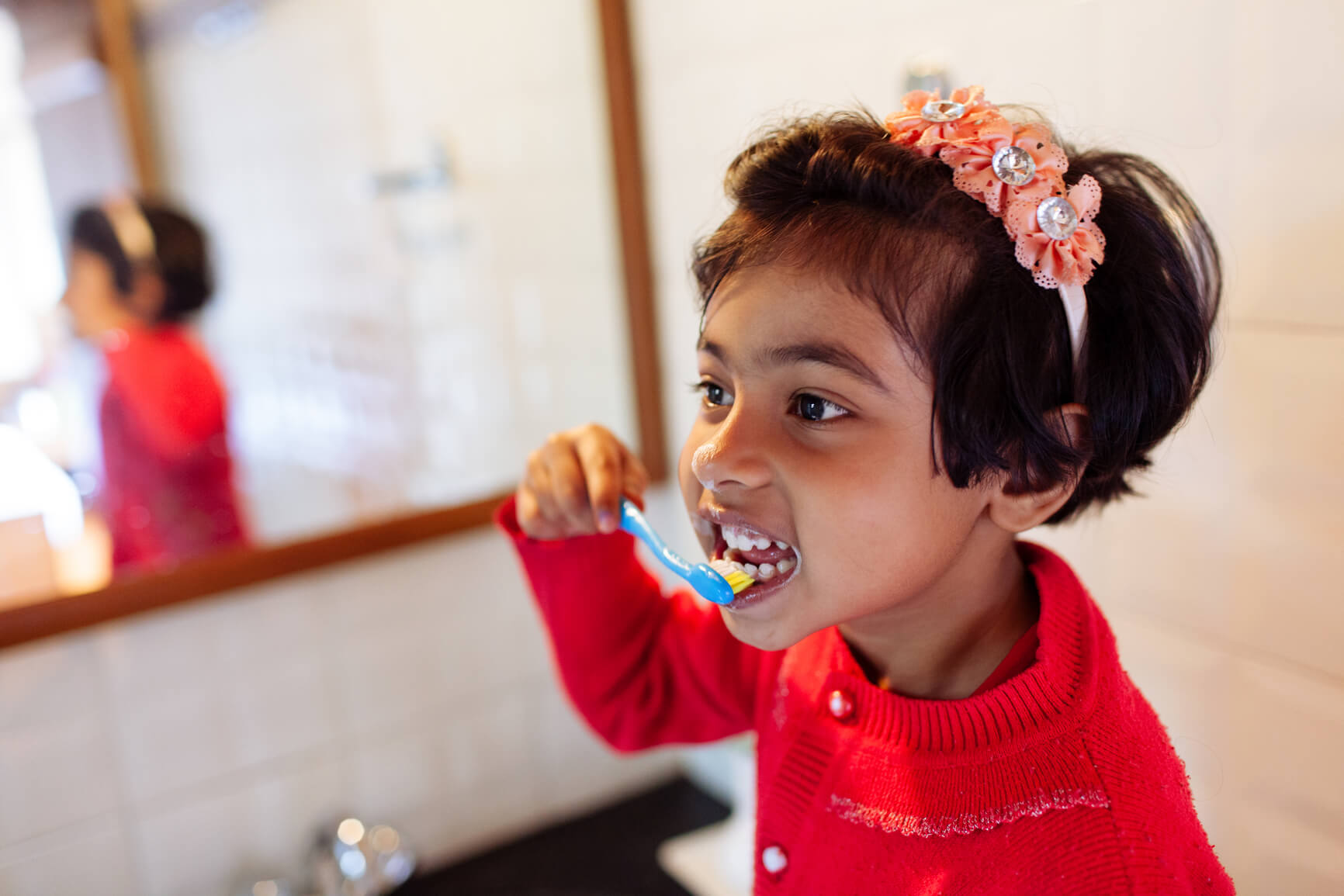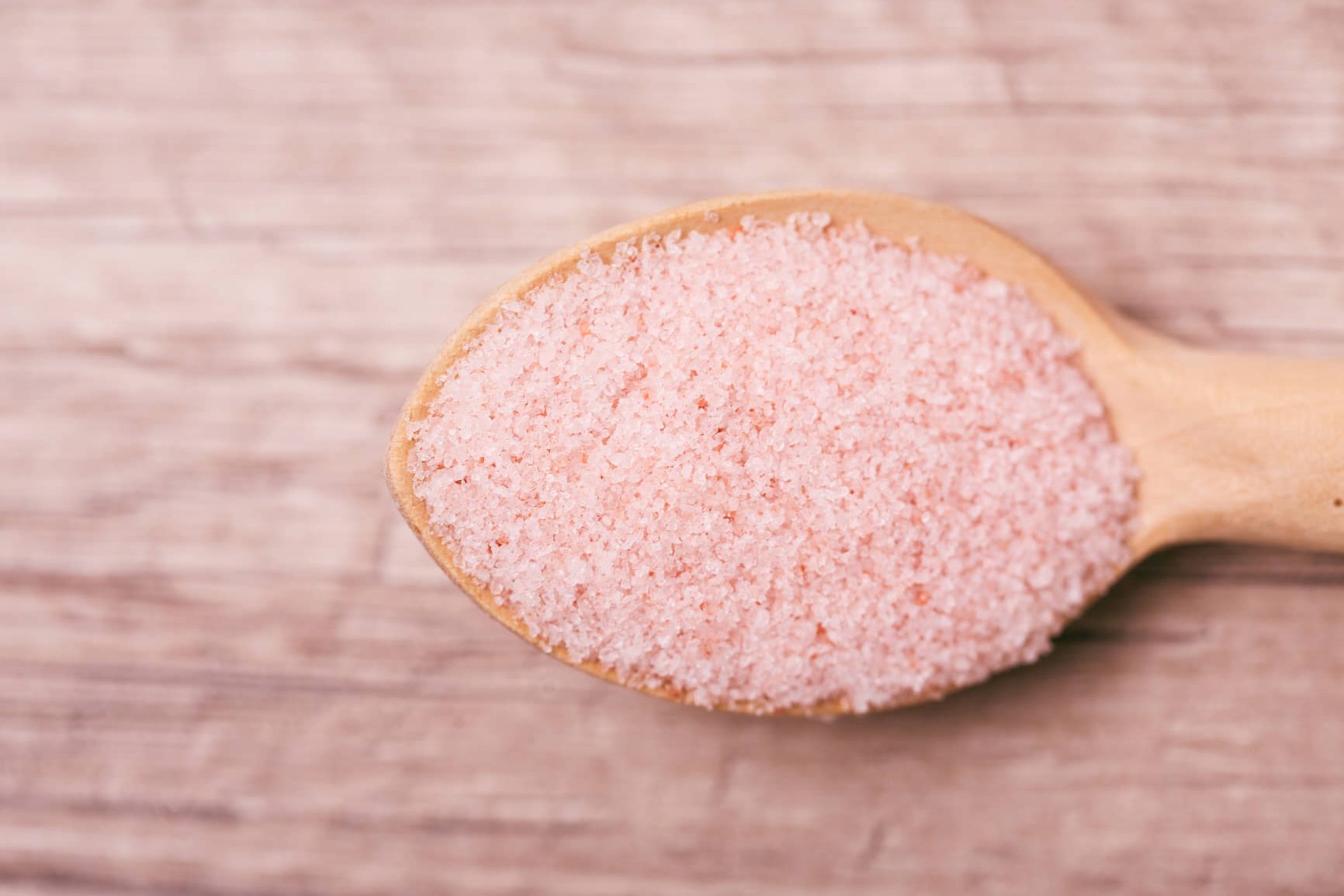-
Keeping your child’s pearly whites healthy has significant benefits for their teeth and mouth hygiene as they grow. But what’s the best way to look after your child’s chompers?
Paediatric dentist and oral health consultant Dr Sarah Raphael shares her expert advice.
Listen now: How to look after your child’s teeth

-
Where to start?
Children usually start to grow teeth by the time they are 12 months old. Even before teeth arrive, it’s a good idea to familiarise your child with the teeth cleaning process. Wiping the gums with a damp cloth and introducing a small toothbrush as a toy is a good way for young children to become used to having something in their mouths.
Once these little baby teeth come through, it’s important to prevent tooth decay and keep them clean as the health of the baby teeth can directly impact the condition of adult teeth. So what can you do as a parent to ensure they stay healthy from the get-go?
Expose teeth to fluoride daily
In Australia, only 48% of people brush their teeth twice a day. However, teeth require frequent washing with fluoride to stay nice and healthy. It’s important for children to brush their teeth twice daily with toothpaste containing fluoride and to drink plenty of tap water or fluoridated bottled water as a primary drink.
Australian guidelines say that children should start to use child-strength toothpaste at the age of 18 months. If that’s not available, use a very tiny smear of adult’s toothpaste on the brush. Before 18 months, brush teeth with only water, so as to not over-expose your child to fluoride. While fluoride is fantastic for looking after teeth, too much can cause problems with enamel development.
Have a look at your child’s ability to draw or their handwriting and think about how dexterous they are; this can be translated in to how well they can brush their teeth.
Of course children love their independence, but for the younger ones, it’s important to take an active role in helping them brush their teeth.
Avoid sugar
Not only is sugar bad for overall health, it’s terrible for teeth. Sugar is hidden everywhere, particularly in children’s snacks and yoghurts that sound healthy. Look thoroughly on food packaging to reduce this extra intake.
According to a report from the Australian Institute of Health and Welfare into oral health and dental care in Australia, in 2010, 55% of 6-year-olds had experienced decay in their baby teeth and 48% of 12-year-olds had experienced decay in their permanent teeth.
Visit the dentist regularly
It’s important for children to be familiar with a dentist setting early on. The Australasian Academy of Paediatric Dentistry suggests children should be taken to the dentist before they turn one. This could be going along with a parent or carer, or with a sibling. Becoming familiar with what a dental surgery looks like means children aren’t frightened when they do have to visit the dentist themselves.
Consistent check-ups also mean small problems don’t turn into big problems. Decay is preventable and most people can’t detect the very early stages of decay, but a dentist can. As long as it’s not a cavity, it can be reversed and treated.
-
Scratching the itch: How to deal with mozzie bites this summer
Ever wondered why you get bitten more than others?
-
Get ready for summer guide
Shake off the very last of those winter blues and start preparing for your most energised summer ever.
-
Foods to fuel your brain
Get the edge in your exams with these tips
-
Proven ways to prevent a cold
We explore the effectiveness of supplements, and our top tips to keep you as healthy as possible this winter.
-
Exploring ‘The Science of Happiness’
Psychologist Emily Toner on the benefits positive psychology.
-
Salt: How much is too much?
It’s probably less than you think.
Subscribe to receive the best from Live Better every week. Healthy recipes, exercise tips and activities, offers and promotions – everything to help you eat, move and feel better.
By clicking sign up I understand and agree to Medibank's privacy policy





